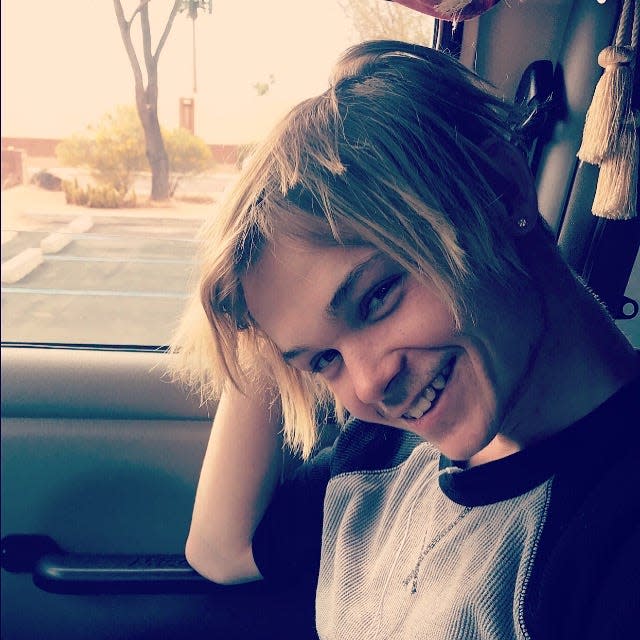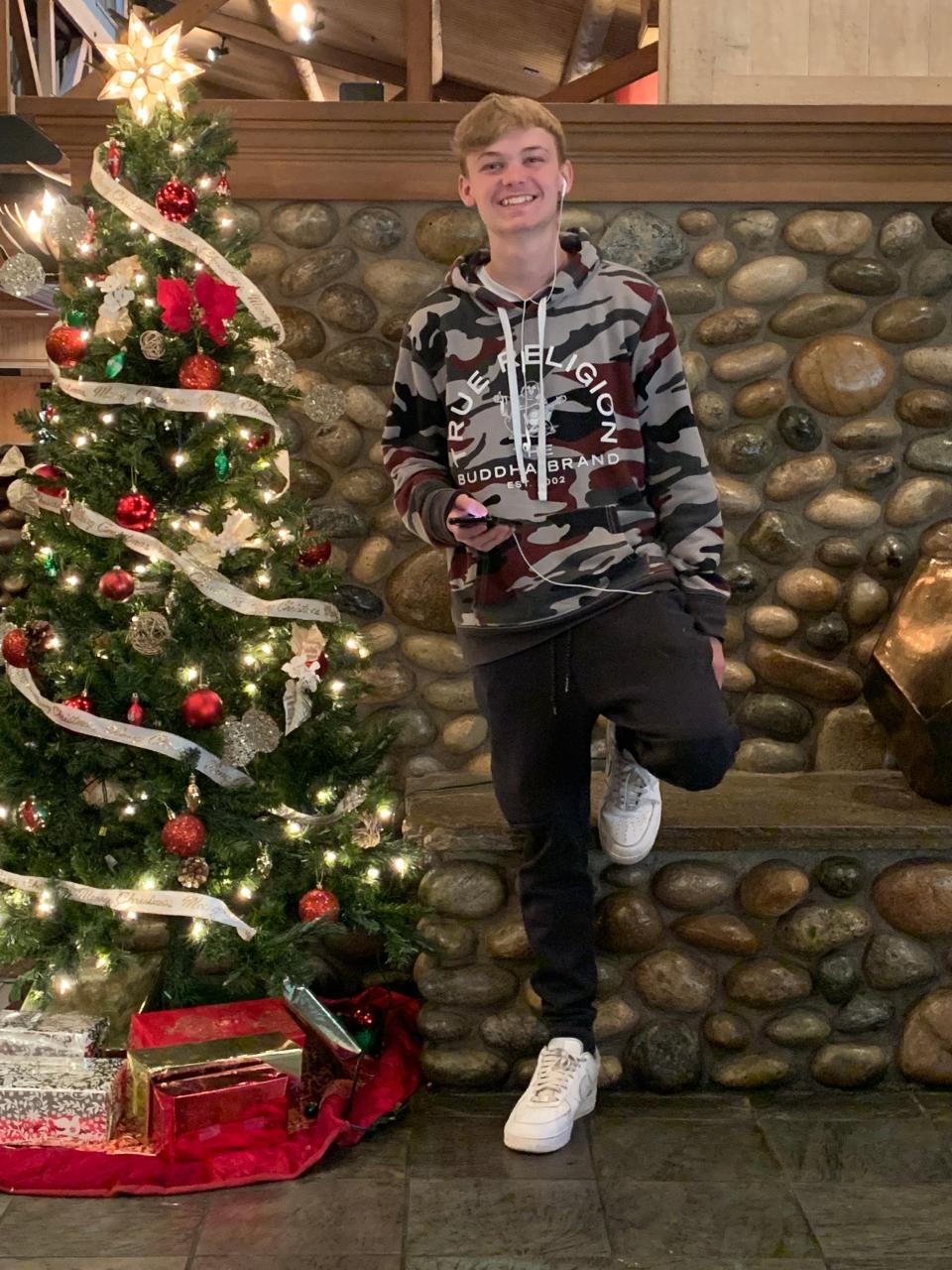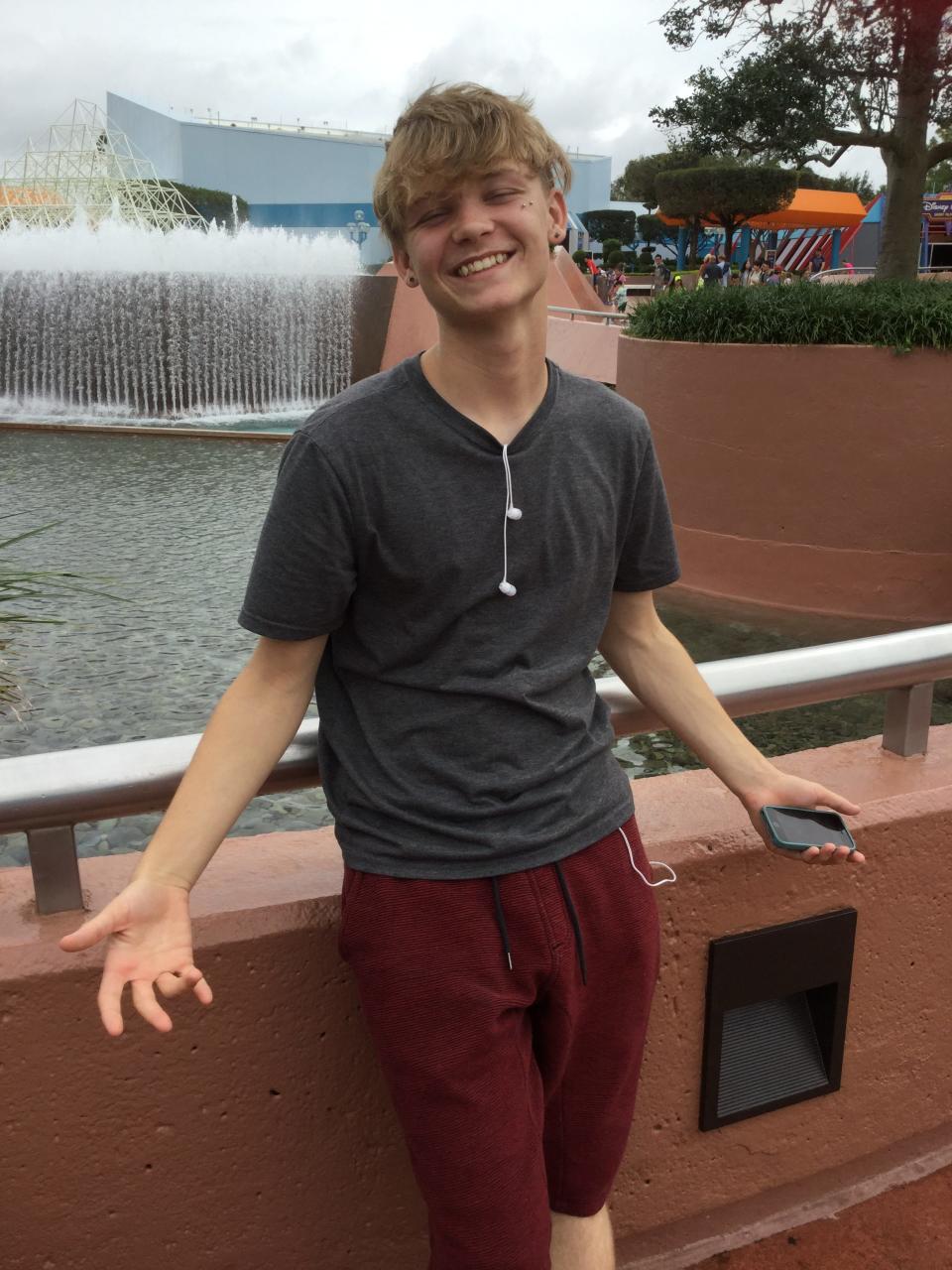Gaps in care are harming Arizonans with serious mental illness, 'Mad Moms' group says

- Oops!Something went wrong.Please try again later.
Those who loved 23-year-old Tempe native Joshua Fox remember him as someone who tried to get help for his schizophrenia and was failed every step of the way until his delusions led him to take his father's life and, eventually, his own.
Fox's mother, Crystal Fox, says her son's violent behavior, his conviction for manslaughter and his death by suicide last month while incarcerated were direct results of psychosis from his mental illness and illustrate dangerous gaps in the way people with serious mental illnesses are treated in Arizona.
Fox is a member of a growing group of Arizonans called Mad Moms who have loved ones with mental illness. The group is citing Fox's death as they call on Arizona legislators this session to do more to ensure people with the most severe forms of mental illness get intervention when they need it rather than ending up in the criminal justice system like Joshua Fox.
Arizona has some of the best mental health laws in the country, thanks to a 1981 lawsuit called Arnold v. Sarn, which was a class-action lawsuit that secured a better support system for people with serious mental illness. The problem, many Mad Moms members say, is that the laws aren't always being followed. People with psychosis often don't get inpatient psychiatric beds or the secure housing they need, and some of those who do get treatment are discharged without the resources to stay well, group members say.
The Mad Moms group, which includes dads, sisters, guardians, and grandparents in addition to moms, wants more compassion from Arizonans for what families endure when a loved one has a severe mental illness. While some patients with severe psychiatric illness are getting the treatment they need, others are wrongfully ending up in the criminal justice system or living in dangerous conditions on the street, the Mad Moms group says.
"Arizona can't do this to us anymore, expecting jails and mothers and families to care for the sickest patients at our own expense and at our own risk. The Mad Moms will be fighting back," Crystal Fox told the Joint Legislative Psychiatric Hospital Review Council on Jan. 3.

'Let's help people before they die'
The Mad Moms already have the support of state Sen. Catherine Miranda, D-Phoenix, who sits on the Psychiatric Hospital Review Council and has pledged to amplify the stories of Mad Moms and their loved ones during the current legislative session. Other legislators on the council at the nearly five-hour Jan. 3 meeting included Sen. Justine Wadsack, R-Tucson, and Rep. Barbara Parker, R-Mesa, who both indicated support for the Mad Moms, too.
Miranda, who is an anti-abortion Democrat, said she wants to challenge her colleagues who are against abortion to "take care of that baby after it is born" and "let's hear our family stories and let's help people before they die."
Those who testified at the meeting indicated a huge need for long-term treatment beds for the Arizonans with serious mental illness who are cycling between homelessness, short-term treatment and jail.
It's inhumane to put people with severe mental illness into handcuffs because they are in psychosis, and yet that's what's happening, retired Mesa Police Department Detective Amanda Stamps told the meeting.
The answer is more long-term beds for psychiatric patients, she said.
"I wish the police were the answer, I wish the first responders were the answer, but we have checked all the boxes and the majority of agencies have checked all the boxes at this point," Stamps told the meeting. "It's not fair to the family members. It's not fair to the people with mental illness. ... Quite frankly, I'll speak for my brothers and sisters, it's not fair to police and fire."
Joshua Fox was sentenced Dec. 15 to eight years behind bars for stabbing his father, John Fox, to death in June 2021 while the two were in an SUV on a grocery shopping trip. His family forgave him for the tragedy because it was the schizophrenia that stabbed John Fox; it wasn't something Joshua would do, Crystal said.
"Joshua was the sweetest child. He loved writing, art, music and wolves. When he had his first psychotic break, he stabbed his leg with a knife, ran out of a moving vehicle, ran into traffic and started asking to purchase a gun," Crystal Fox said.
"We realized by 2020 that this was much more serious and we could not get him help. ... He was the definition of danger to self and others."
But Fox said three efforts to petition the court to get her son involuntary mental health treatment failed as did an effort to get her son designated as a patient with "serious mental illness" with the state.
"There is a major shortage of beds for court-ordered treatment, Fox told the Jan. 3 meeting. "In all, seven mental health agencies refused to treat Joshua. He had been refusing to eat, claiming his food was contaminated with semen and feces. He was emaciated and catatonic. He thought he had syphilis and hepatitis, but he didn't. He also thought his parents were trying to kill him."

Department of Corrections needs to be held accountable, family says
Fox was found unresponsive in his prison cell in the Arizona State Prison Complex — Phoenix on Dec. 20, just five days after he was sentenced. He was placed in the custody of the Arizona Department of Corrections, Rehabilitation & Reentry on Dec. 19, just one day before his suicide attempt, prison records show. He was 5-foot-10 inches tall and weighed 130 pounds, prison records say, and his death is one of five prison inmate suicides reported in Arizona in a recent 23-day period.
"(The prison system) doesn't care. That's why these suicides are happening. And for some reason, nobody cares. Nobody's paying attention," Crystal Fox said.
Prison staff "conducted life-saving measures until paramedics arrived onsite" before Joshua Fox was transported to Valleywise Health Medical Center where he later died, according to the news release.
"They need to be accountable," Crystal Fox said of the Arizona Department of Corrections, Rehabilitation & Reentry. "They didn't do anything. And they still haven't done anything. It's completely inappropriate."
According to the department's Mental Health Technical Manual, patients who have been treated for serious mental illness are required to complete an initial mental health assessment within two days upon transfer. That assessment is used to assist prison staff in "decisions regarding classification, placement, and need level for further mental health services and/or programming," the manual states.
The Department of Corrections did not confirm whether they had conducted the mental health evaluation for Joshua.
The Arizona Department of Corrections, Rehabilitation & Reentry classified Fox's death as "an apparent act of self-harm" and the department's notification of Fox's death says all inmate deaths are investigated in consultation with the county medical examiner’s office.
In response to questions about Fox's death, including whether he was on a suicide watch, officials sent a statement to The Arizona Republic that says the department "takes seriously the physical and mental wellbeing of each individual in our custody."
The investigation of Fox's death is ongoing, officials said, "and the department does not comment on active investigations, nor will the department provide or comment on protected and or confidential health information of inmates."

At least 97 inmates have died by suicide since fiscal year 2010, and 28 of them happened since fiscal year 2021, department data shows.
"There's a whole community of people who are devastated," Crystal Fox said. "Everybody was pulling for Josh, but he just couldn't do it anymore. He never had a chance. I couldn't get help for my son."
Free mental health resources are available to anyone in Arizona. A statewide mental health crisis line is available at 844-534-HOPE (4673). Another resource for 24/7 help is to dial 988. The 988 Suicide and Crisis Lifeline in 2022 replaced the National Suicide Prevention Lifeline. Teen Lifeline is for kids to call and get free, confidential and anonymous help from trained peers at 602-248-8336 (TEEN) or 800-248-8336 (TEEN) outside of Maricopa County.
Republic reporter Jose R. Gonzalez contributed to this report.
Reach health care reporter Stephanie Innes at Stephanie.Innes@gannett.com or at 602-444-8369. Follow her on X, formerly Twitter: @stephanieinnes.
This article originally appeared on Arizona Republic: 'Mad Moms' say the death of a young Tempe man is a call to action

